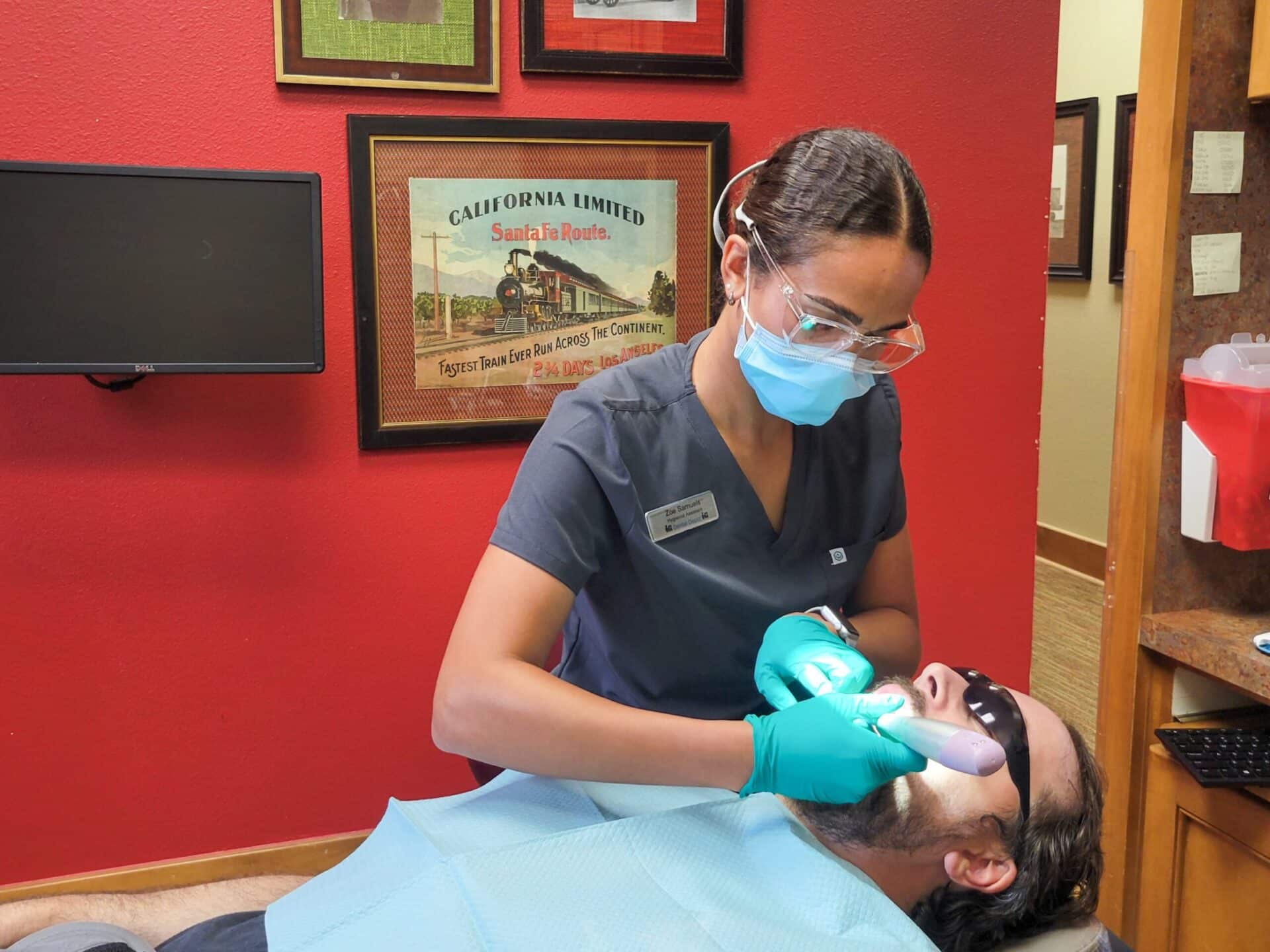Dental deep cleaning, the common term for periodontal scaling and root planing, is used to treat periodontal disease (periodontitis), especially in the early stages. Unlike routine cleanings intended to prevent gum disease, deep cleaning treats gum disease by removing bacteria deposits from under diseased gum tissue. Treating the periodontal disease early is critical to preserving teeth and preventing major oral health problems like bone and tissue loss, moving or losing teeth, and swelling or infection.

Dental deep cleaning is also commonly called gum therapy because it is typically recommended for patients diagnosed with periodontal (gum) disease. It provides a non-surgical alternative to gum surgery to treat periodontitis, especially in the early stages. It reduces gum pocket depths without damaging the teeth or gums themselves and requires no removal of the gum tissue. The procedure is performed under local anesthesia, with most patients seeing results after a single treatment and experiencing only minimal—if any—pain or discomfort post-treatment.
Dental Depot of Oklahoma offers dental deep cleaning, scaling, and planning as part of our comprehensive dental care services. We know the best smile is healthy, and sometimes patients need care beyond routine cleanings to protect and preserve their oral health. From fillings and fluoride to prosthodontics and periodontal treatments, you’ll find everything you need for a lifetime of good oral health at any of our Norman, Tulsa, or Oklahoma City locations.
Dental Depot is committed to your dental health, and we pride ourselves on delivering comprehensive, personalized dental care that ensures your teeth stay clean and strong for life. With an on-site team of professionals and specialists, as well as flexible scheduling and multiple locations, Dental Depot offers Oklahomans and their families the seamless dental care experience you deserve at every stage of life. To find out if you may benefit from deep cleaning, schedule an appointment today at one of our many Oklahoma locations
Dentists divide your mouth into four quadrants—upper left, upper right, lower left, and lower right. An initial deep cleaning treatment is typically priced per quadrant. Depending on the severity of your periodontitis, your dentist may also recommend that you receive a periodontal maintenance cleaning every four months, which will have an additional cost.
Most dental insurances will cover the cost of deep cleaning as long as your dentist can provide proof of a periodontal disease diagnosis. Dental Depot also offers payment plans and financing options like CareCredit to help you afford the essential dental care you need.
Periodontal disease is often accompanied by gum sensitivity, which can cause pain and discomfort when the gums or teeth are touched. However, the topical numbing gels and local anesthetics applied before the cleaning ensure you feel no pain during the procedure. The only other pain you may feel is mild discomfort, tooth sensitivity, or gum tenderness after the cleaning, which usually subsides within a few days.
Dental deep cleaning provides a non-surgical alternative to gum surgery for the treatment of periodontitis, especially in the early stages. It reduces gum pocket depths without damaging the teeth or gums themselves and requires no removal of the gum tissue. The procedure is performed under local anesthesia, with most patients seeing results after a single treatment and experiencing only minimal—if any—pain or discomfort post-treatment.
Immediately after the procedure, you will be prescribed an antimicrobial mouthwash with chlorhexidine gluconate to help control the bacteria in your mouth and prevent infection. This is also a good time to establish good oral hygiene habits, including twice-daily brushing with an electric toothbrush, daily flossing, and using a mouth rinse after brushing and flossing. You may also need follow-up cleaning visits every three to four months.
Deep cleaning is usually performed in a dentist’s office and consists of two phases: scaling and root planning. A topical anesthesia gel will be applied to your gums around the procedure site before they are injected with a local anesthetic agent. This ensures you feel no pain or discomfort during the cleaning. Then, the provider uses a small scraping tool called a scaler to remove tartar before planing or smoothing the root and reattaching the teeth to the gums.
A standard deep cleaning takes about an hour per quad, meaning patients may have to return for up to four visits to complete their treatment. If the schedule and insurance allows, your dentist may try to complete two quadrants in one visit to save you trips and extra numbing.